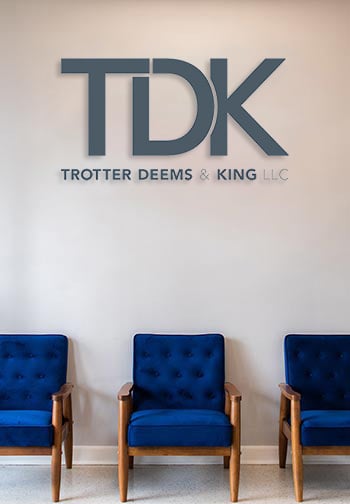Finding Estate Planning Devices That Suit Your Needs
Deciding what to do with your estate can be a stressful process, but the right estate planning device can help you feel more secure about the future of your assets and facilitate a smoother transition for your beneficiaries.
At Trotter Deems & King LLC, we are committed to providing you with the knowledge necessary to make informed decisions about your estate. Whether you choose to create a will, a trust, or both, we can assist you at every step in the process and set your mind at ease.
Navigating Wills And Trusts
Although wills and trusts are often discussed in tandem, they are far from interchangeable.
A will outlines how your assets should be distributed and how your other affairs should be handled after your death. A carefully prepared will can achieve many goals and provide guidance for a number of matters, including:
- Appointing a guardian for children or adults with special needs
- Determining how to address debts
- Disinheriting certain individuals who would normally be entitled to estate benefits
- Detailing wishes for funeral arrangements
Wills require probate in Georgia, meaning that the transfer of assets and execution of your wishes will be carried out by the court. Probate can be a lengthy and expensive process, so some individuals choose to establish trusts to reduce its impacts.
A trust gives a third party access to and authority over your assets. Instead of the court overseeing the distribution of assets, the trustee would be able to distribute property directly to the designated beneficiaries. Wills can be used to create testamentary trusts, but their inclusion in the will does not help avoid the probate process. A revocable living trust, or a trust created while you are still alive, allows you to make any necessary changes as your goals and assets continue to evolve.
Other Estate Planning Options
Estate plans may also include instructions for how your legal, financial and medical decisions should be handled if you become incapacitated.
An advance medical directive provides legal documentation for how your medical needs should be addressed when you fall ill or cannot make decisions independently. This can cover anything from resuscitation orders to end-of-life comfort care.
While an advanced directive can dictate the terms of your medical care, your financial affairs must be addressed as well. A power of attorney designates a person or organization to make decisions on your behalf. Signing a power of attorney does not relinquish your rights to make your own decisions, but rather gives another party the ability to assist you when necessary.
Without a power of attorney, your family may have to file a petition for conservatorship in Georgia probate court, which can take up to eight weeks.
Make Informed Decisions About Your Future With Trotter Deems & King LLC
Proper estate planning can make a world of difference for you and your family. Our firm has the experience to guide you through these complex processes and help you establish estate plans that make you feel secure. Email us or call us in Cartersville at 770-382-6144 to schedule a consultation.

